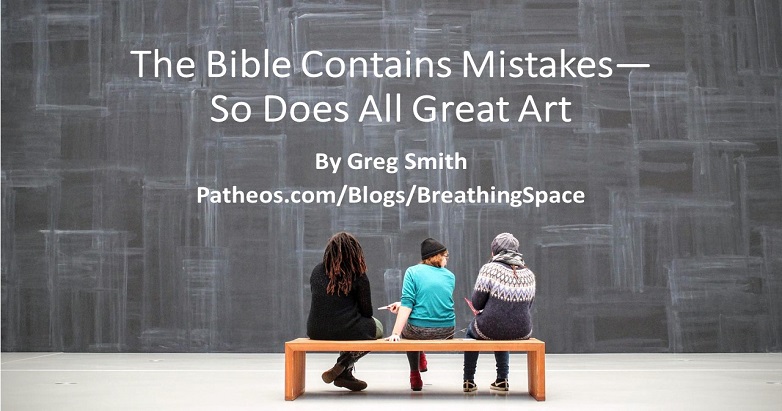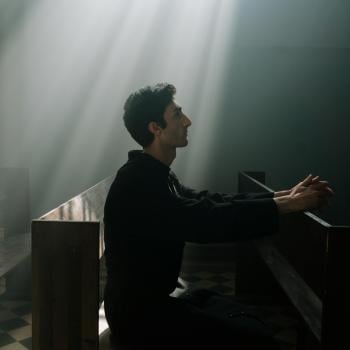“You’re saying there are contradictions in the Bible!” screamed the irate church member after one of my sermons. I had pointed out that it’s easy to find passages that disagree with each other. Honestly, I can’t remember the examples I gave, but here are a few I’ll point out now:
Biblical Contradictions
- Exodus says to keep the Sabbath day holy, and Romans says it’s a matter of conscience.
- Genesis commands believers to circumcise their children, and Galatians says it doesn’t matter.
- Exodus says God punishes children for the sins of their parents; Ezekiel says each one is responsible only for their own sins.
- Genesis says God tempted Abraham, but James says God doesn’t tempt anyone.
- Moses told people to honor their father and mother, but Jesus said his followers should hate their father and mother, brother and sister.
- Job says there is no resurrection, but John says resurrection is possible.
- In Genesis, Abraham says he saw God. John says nobody can see God.
- Genesis contains two creation stories with differing details.
- The four Gospels contain distinct and disagreeing details of Jesus’ life.
And, of course, I could go on. All this was problematic for my upset parishioner because he bought the line from the Baptist Faith and Message that says the Bible “…has God for its author, salvation for its end, and truth, without any mixture of error, for its matter.”
Gideons’ Claims About the Bible
It would also be an issue If I believed what the Gideons say about the Bible on the endpaper of their New Testaments:
The Bible contains the mind of God, the state of man, the way of salvation, the doom of sinners, and the happiness of believers. Its doctrines are holy, its precepts are binding, its histories are true, and its decisions are immutable.
Read it to be wise, believe it to be safe, and practice it to be holy. It contains light to direct you, food to support you, and comfort to cheer you.
It is the traveler’s map, the pilgrim’s staff, the pilot’s compass, the soldier’s sword and the Christian’s charter. Here too, Heaven is opened and the gates of Hell disclosed.
Christ is its grand subject, our good its design, and the glory of God its end. It should fill the memory, rule the heart and guide the feet. Read it slowly, frequently and prayerfully. It is a mine of wealth, a paradise of glory, and a river of pleasure.
It is given you in life, will be opened at the judgment, and be remembered forever. It involves the highest responsibility, rewards the greatest labor, and will condemn all who trifle with its sacred contents.
Challenges for Fundamentalists
When faced with contradictions in the Bible, fundamentalists feel challenged because they believe that the Bible is one book, written by a single author named God. If this were true, then the disagreements in the Bible would be evidence of a divine author who was schizophrenic at worst, and forgetful at best. If you’re an author, then mistakes, inaccuracies, and inconsistencies are problematic when chapter twenty of your book says the exact opposite of what you said in chapter four. For those who believe the Bible to be one complete book, these inconsistencies present an issue. If this is your perspective, then you have to do all sorts of literary, theological, and other gymnastics to try to make disparate books agree. At best, your final product looks like a jigsaw puzzle with pieces smushed at the edges, trying to make them fit where they don’t actually align.
Freedom for Progressives
Progressive Christians have far fewer challenges with the Bible’s internal disagreements because they understand that the Bible isn’t a single book. It is an entire library written by a variety of human authors from three continents over the span of centuries. Instead of viewing inconsistencies as a problem, we reject any expectation of agreement between biblical authors. In fact, the Bible isn’t a book at all–it’s a library. It was never meant to present one consistent perspective, but a variety of viewpoints. The Bible is a conversation between poets, prophets, priests, and patriarchs who disagreed with each other on fundamental issues. Progressives are not bothered by inconsistencies in the Bible because they don’t expect congruency anyway. They don’t see the Bible as full of contradictions, because that would presuppose an expectation of agreement. Just as you wouldn’t expect agreement between authors of science fiction, repair manuals, and cookbooks in a library, its useless to demand agreement between writers of biblical books.
Is the Bible Inerrant?
It’s dangerous to believe that God wrote a perfect, inerrant, infallible Bible. The inerrancy doctrine states that if any errors exist, then the whole Bible is rendered untrustworthy. Since they don’t want an unreliable Bible, inerrantists argue that the Bible must be one hundred percent correct. This is a pretty flimsy foundation on which to base your faith, because all it takes is one proven inaccuracy to make your belief topple like a house of cards. Too many people abandon faith not because they found incongruities in the Bible, but because fundamentalists told them they must either believe it all, or not at all. This kind of black and white thinking actually forces believers away from the faith more than it wins converts.
The Bible as Art
In truth, inspiration of scripture looks less like divine dictation of word-for-word messages from God, and more like a painter whose brush strokes reflect an inspiring sunset. The painter perfectly depicts her feelings and impressions of a sublime experience, without any claim that the sun somehow guided her paintbrush. Accepting this kind of inspiration allows a variety of artists to paint pictures of God in their own style. It permits the reader to peruse the pages of scripture much the way a person might wander the halls of an art gallery, lingering in front of one piece and bypassing another that they view as less meaningful. Instead of criticizing the mistakes and contradictions, the scripture aficionado appreciates each as a matter of perspective, then moves on to the next passage with an expectation of awe rather than accuracy.
The Bible contains mistakes–so does all great art. We do ourselves a disservice if we expect a painting with no stray brush strokes. We make faith challenging for other believers if we superimpose an expectation of perfection never intended by the original writers of poetry, history, prophecy, commentary, and friendly correspondence. When we allow the scriptures to be the library and art gallery that they were meant to be, we liberate them from the perfectionism that holds both believers and the Bible bound.













